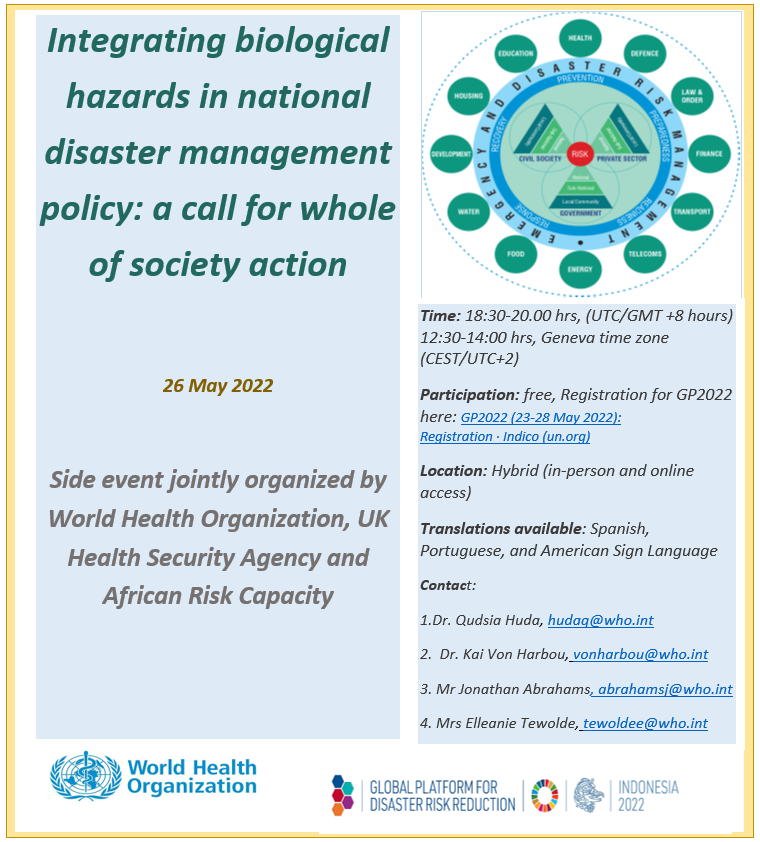Background / Rationale:
The global experience of the COVID-19 pandemic has demonstrated that whole-of-society action supported by effective leadership and governance is required to manage the systemic risks associated with biological hazards. The pandemic has challenged risk governance in countries and catalyzed changes and innovations in policies, legislation, coordination mechanisms, financing and effective risk management that have significant implications for future disaster risk reduction policy and practice. Collaborative partnerships, good practices, lessons learned and evidence generated during COVID-19 will need to be institutionalized in order to strengthen systems and capacities to manage risks of disease outbreaks and other types of emergencies.
Panellist will discuss how the experience and insights gained from the pandemic can help leaders, managers, policy makers, planners and practitioners on applying all-hazards, whole-of-society and risk management approaches to national and local disaster risk management strategies. Emphasis will be placed on country efforts to address the needs of the most vulnerable populations and ensure that no one is left behind.
Objectives:
- Promote effective risk governance, partnerships and collaboration on disaster risk management within and across sectors at all levels of society
- Share experience and good practices on the integration of biological and other priority hazards in national and local strategies and plans for disaster risk reduction
- Discuss how the governance, innovations and lessons from COVID-19 can contribute to all-hazard, whole of society risk management policies, plans and practice at global, national, local and community levels
- Contribute to the knowledge base on managing complex and interconnected risks
- Discuss intersectoral approaches in reducing risk and building resilience
- Identify best practices to accelerate the implementation of the Sendai Framework through policy making, research and innovation.
Documents:
Learn More:
Policy and governance case studies will be discussed to show how good practices, innovations and evidence generated during COVID-19 can be systematically leveraged to strengthen risk governance, policies and actions for the management of health emergencies and disasters.


